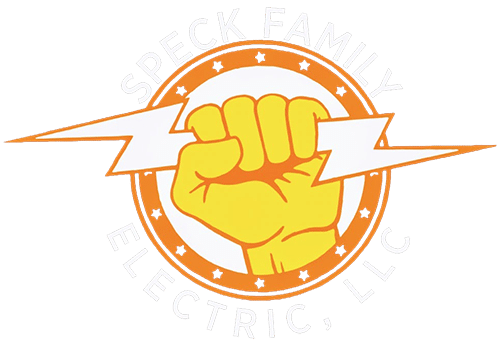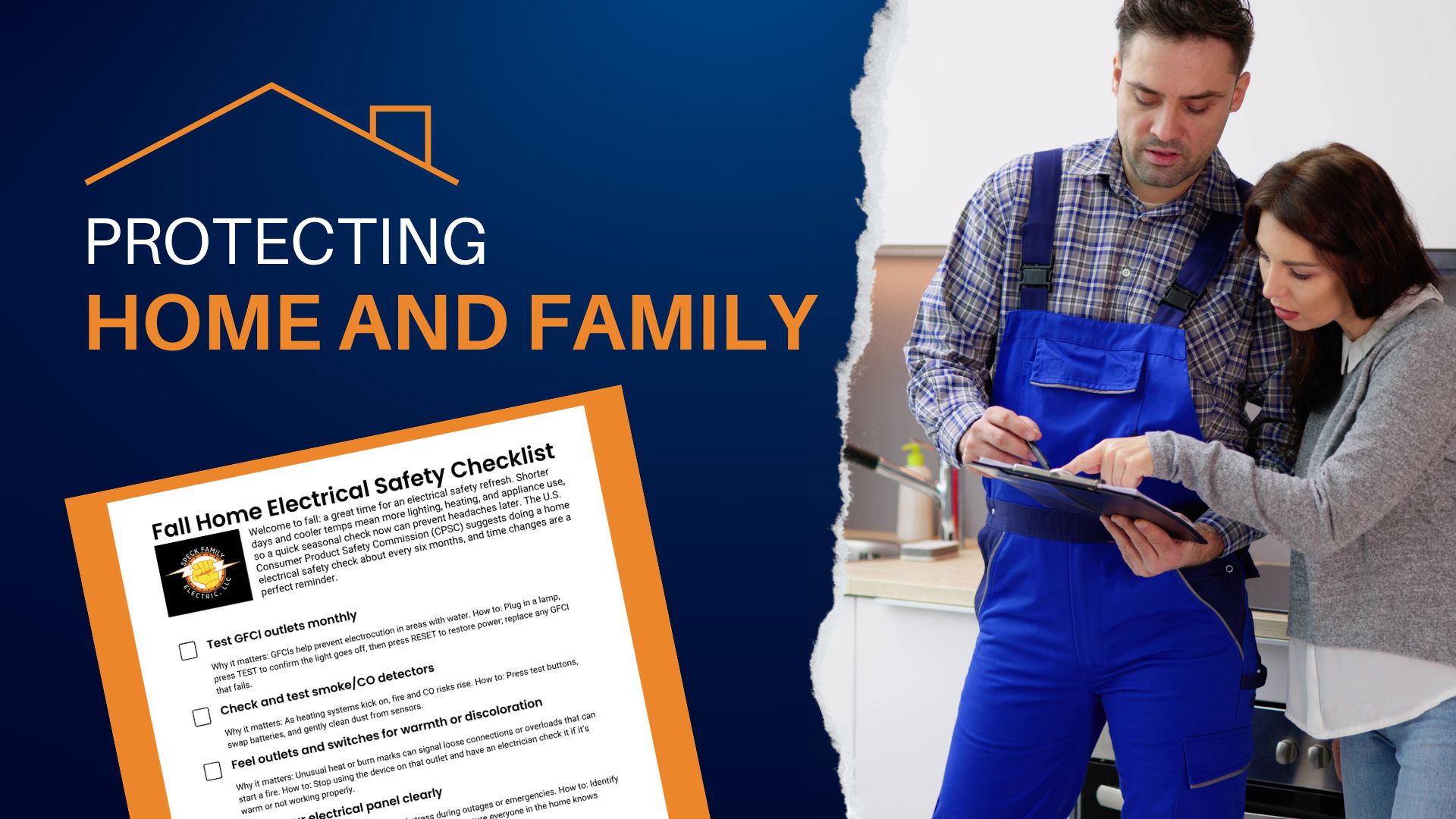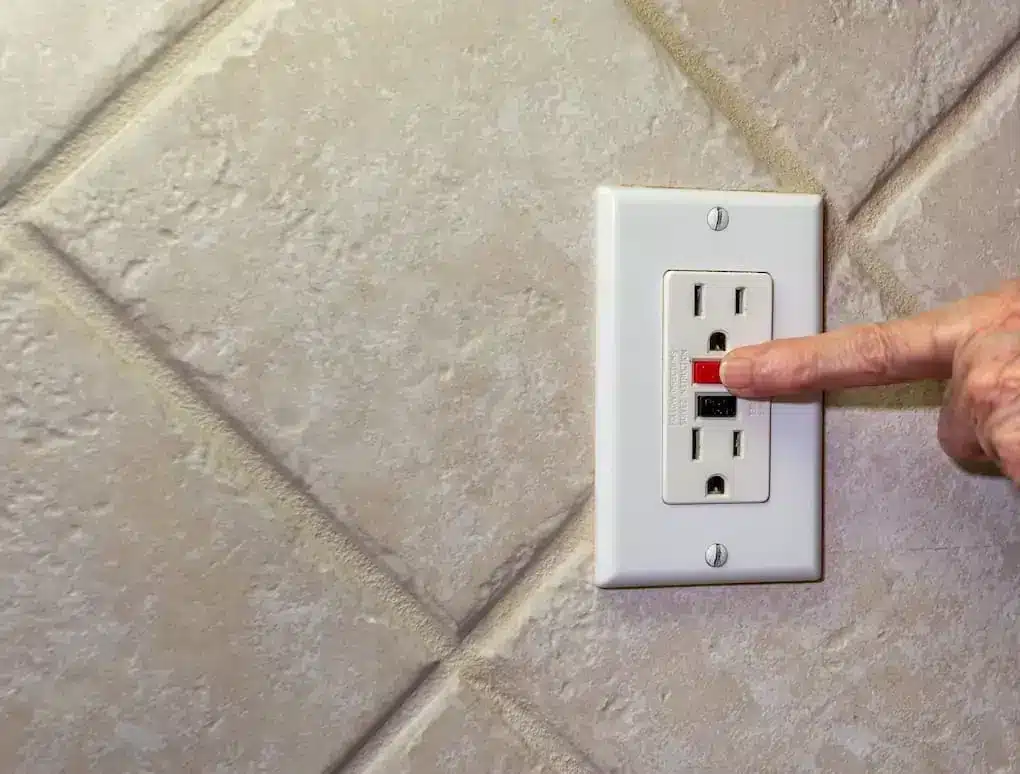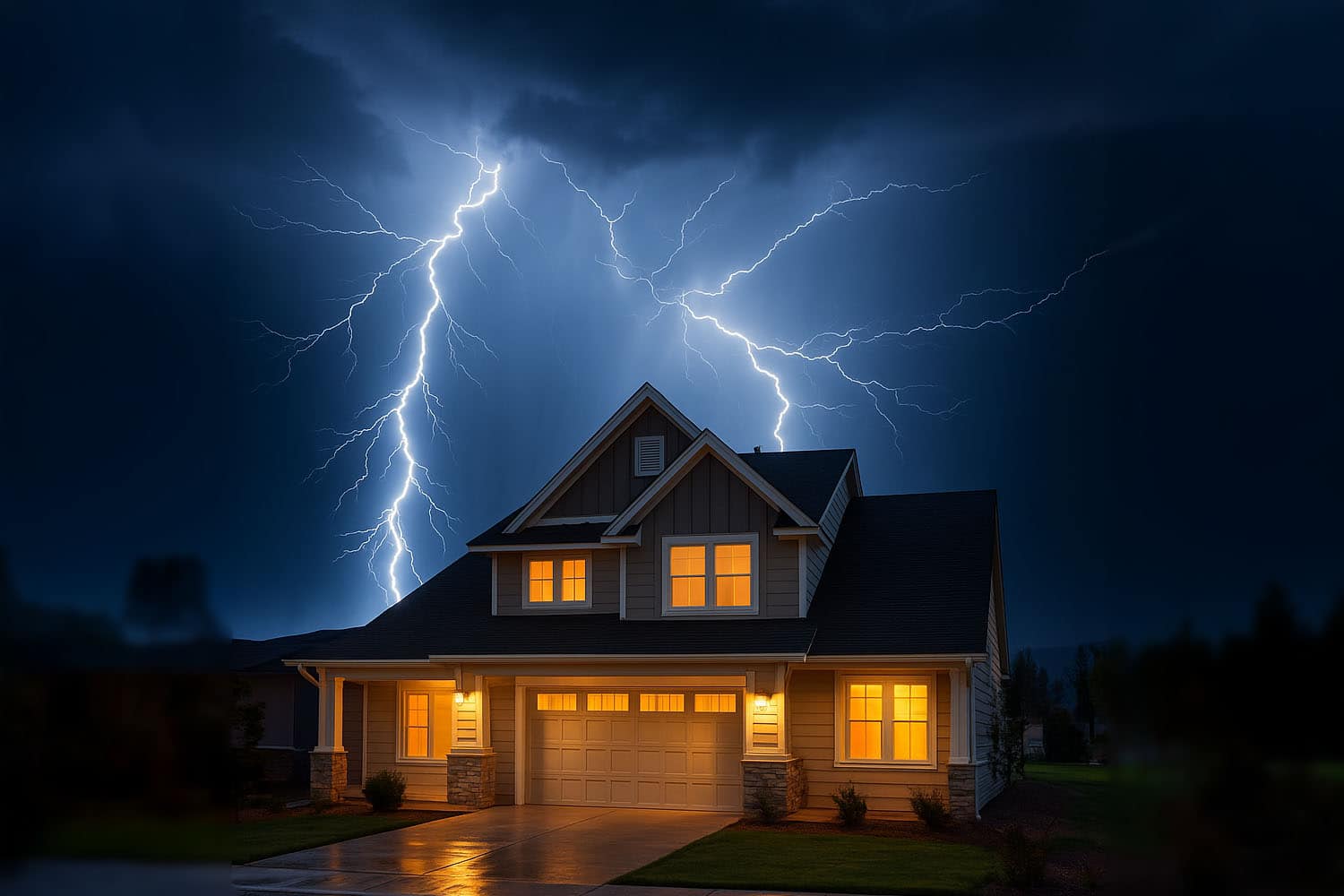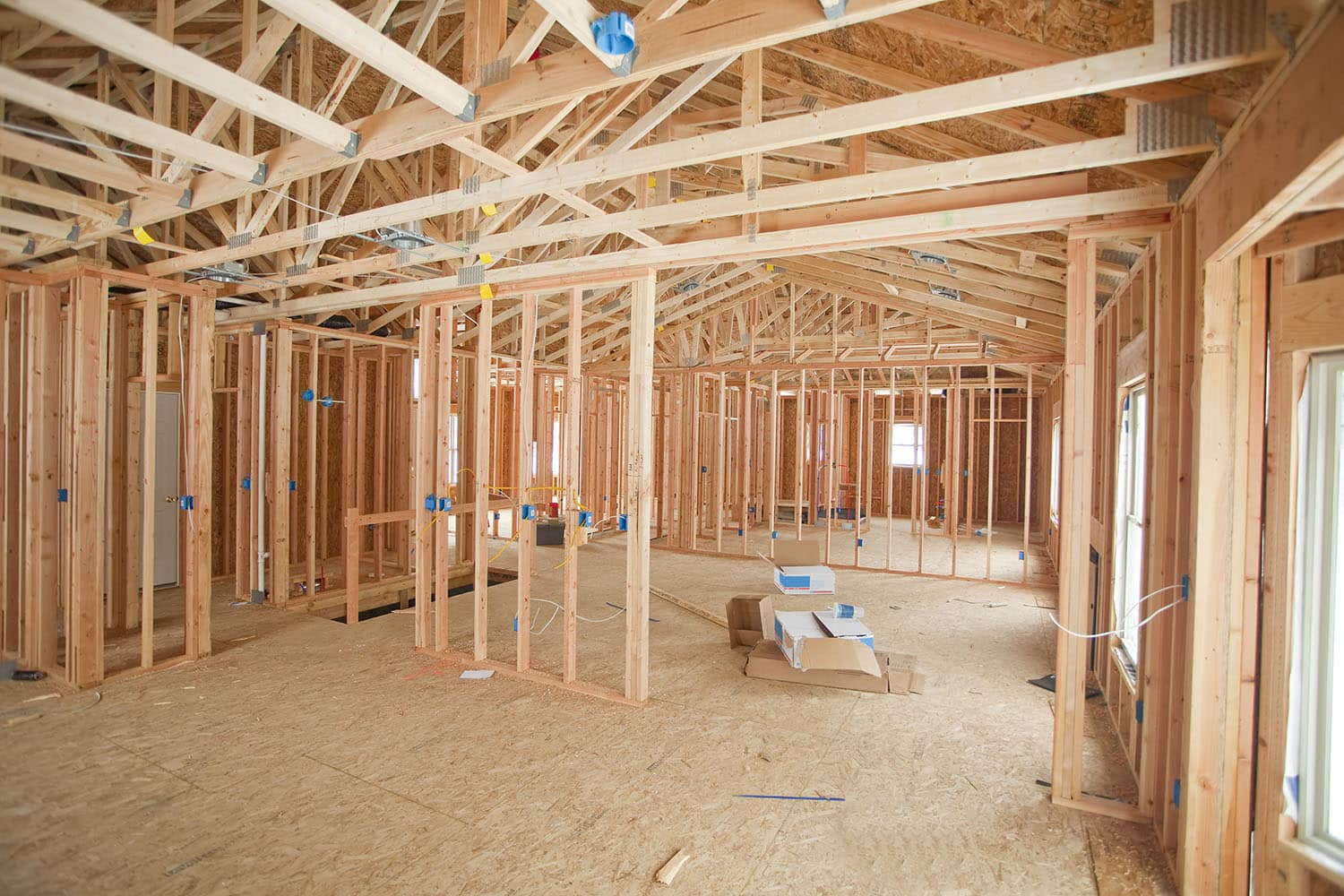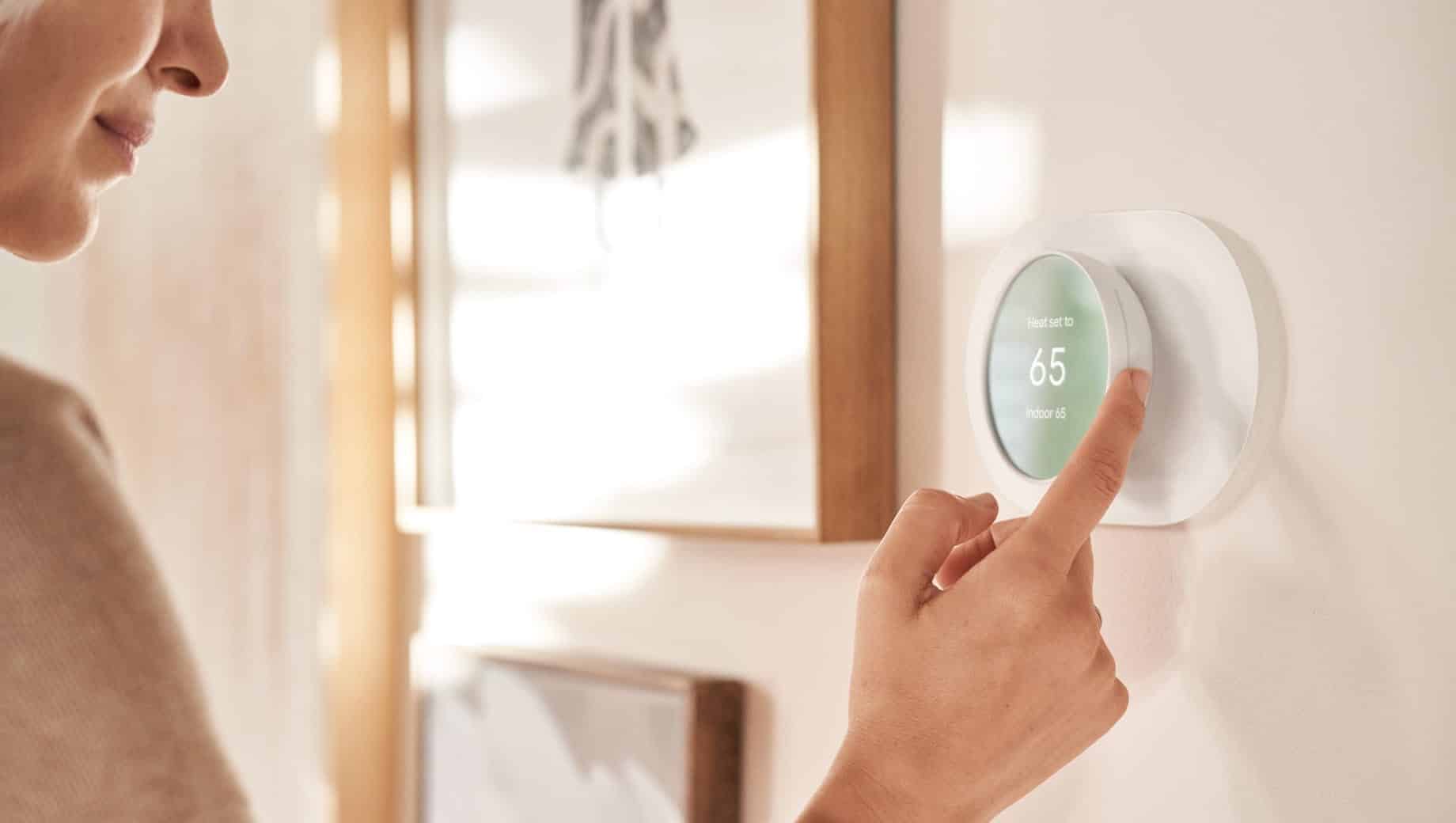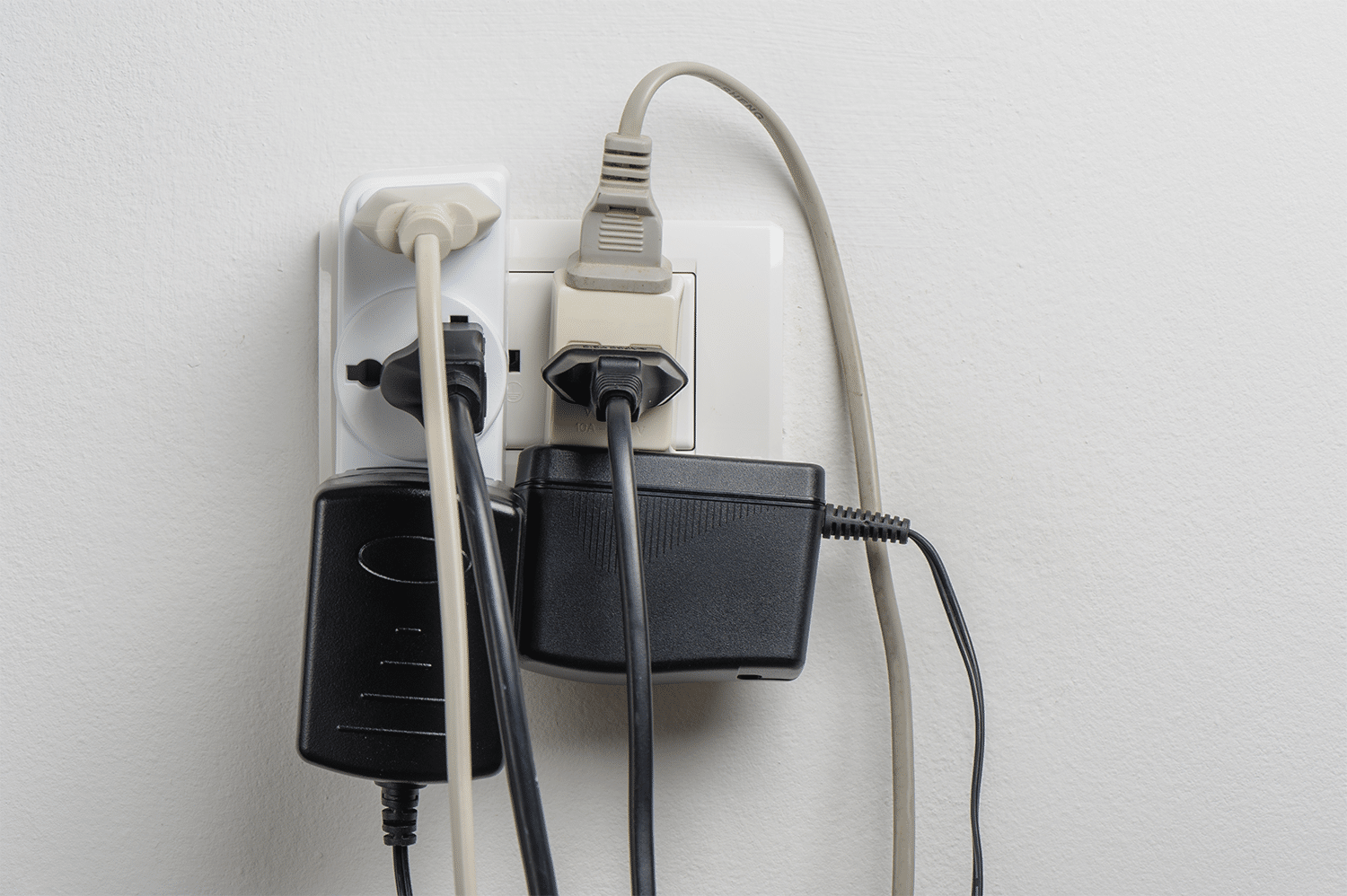
Home Electrical Hazards You Need to be Aware of
Covered In This Article:
Learning what home electrical hazards to look for is one of the best ways to help prevent an electrical accident from happening. Here are some common electrical hazards you need to be aware of and how you can remove these risks.
Overloaded Outlets
In most homes today, there are a lot of appliances and items that need to be plugged in. But there are usually only so many outlets on our walls. Plugging our TV, computer, smart home speakers, and surround sound speakers into the same spot might be easy, but it’s a common home electrical hazard.
Outlets are designed to handle a certain amount of electricity. When you stack, or “piggyback,” multiple plugs on the same outlet, you increase the number of amps being used. Exceeding it means you increase your chance of electrical short circuits and fires. To avoid these dangers, the rule of thumb is one plug per socket in each outlet. Even better is unplugging anything you aren’t using. This will also reduce the amount of “phantom” power being used, which will help lower your electricity bills.
Improper Extensions Cord Use
Extension cords are another way homeowners try to extend the usage of their outlets, but these can also be a pretty big home electrical hazard.
According to the Electrical Safety Foundation International (ESFI), 3,300 home fires originate from extension cords each year, killing 50 and injuring 270 more. Heavy reliance on an extension cord, using one that’s damaged, or overloading it can cause it to overheat and catch fire. It’s important to use them appropriately to protect yourself and your home. This includes:
- Never plugging extension cords into one another
- Avoiding overloading extension cords
- Keeping the cord uncovered
- Inspecting the cord for damage before use. If it’s damaged, don’t use it
- Ensure extension cords are properly rated for their intended use and meet or exceed the power needs of the device being used
Outlets Too Close to Water
Water and electricity don’t mix. If an outlet is too close to a water source, like a shower or sink, it could cause an electric shock. The solution to this problem isn’t to remove outlets near water sources (how would you blow dry your hair or use your kitchen appliances?) but to use all precautions available to keep you safe.
This means keeping outlets a good distance away from water and making sure the outlets are ground fault circuit interrupter (GFCI) outlets. These are specifically made for installation in bathrooms, kitchens, and areas where water is used to prevent injury in case water and electricity meet.
Wrong Light Bulbs
It may not seem like it, but using the wrong light bulbs around your home can be dangerous. Using a light bulb with a higher wattage than a lamp can safely accommodate may overload the lamp’s wiring, causing a fire.
To avoid this, use bulbs that are at or below the wattage ratings for each fixture. You can find the maximum wattage on a sticker on a fixture or its cord.
Faulty Wiring
Just like appliances, wiring breaks down over time. When this happens, it can increase the chances of fires, power surges, and other serious consequences. Wiring becomes an electrical hazard when you notice:
- Cracked wire insulation
- Pierced or pinched wire insulation
- Electrical wires chewed up by rodents
- Worn-out cords
If you notice these signs, then it’s time for an update. Because faulty wiring comes with serious risks, it’s best to avoid the DIY route and hire a professional electrician to take care of this task for you.
Improperly Protected Outlets
If you have children, one of the scariest home electrical hazards is unprotected outlets. According to the ESFI, each year approximately 2,400 children suffer severe shocks and burns when they stick items into the slots of electrical outlets. That’s nearly seven children a day. It’s estimated there are six to 12 fatalities a year to this.
It’s crucial to make sure kids are not exposed to any electrical dangers at home. To limit the risk, use plastic covers or tamper-resistant receptacles for every outlet within a child’s reach.
Let Speck Family Electric Keep You and Your Home Safe
Now that you’re aware of these home electrical hazards, you’ll be able to notice them right away and call us to help. We’ll inspect your home and determine what is needed to keep you and your home safe. Our experienced team takes pride in performing reliable services and getting each job done safely and efficiently.
Share this article
Follow us
Latest articles
July 19, 2025
June 17, 2025
